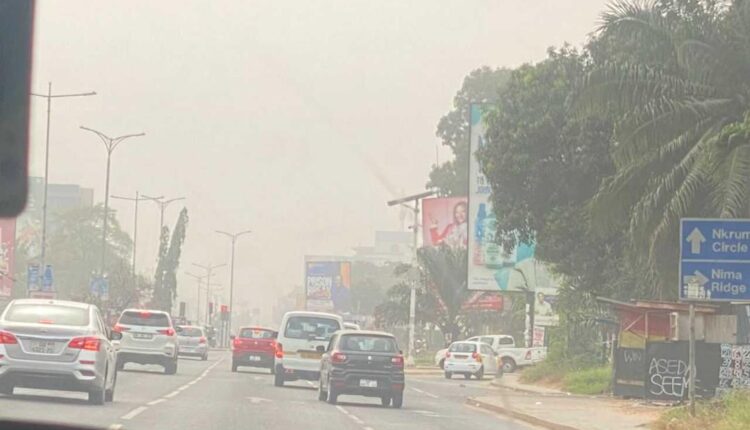Parts of Accra, Ghana’s capital, currently has one of the most hazardous air quality across the world, and has pushed authorities to advise the public, especially persons with respiratory challenges to remain indoors.
The Ghana Health Service (GHS) is advising the public especially those with respiratory diseases to prioritise remaining indoors amidst the deterioration in air quality in the country.
The Environmental Protection Agency (EPA) has raised concerns about the escalating health risks associated with air pollution in Accra, emphasizing the urgent need for immediate action to tackle this critical issue.
Parts of Accra such as Cantonments for instance on Tuesday recorded real-time air quality of 263 which is rated as very unhealthy.
Speaking on the Asaase Breakfast Show on Tuesday (6 February), the director of Public Health at the Ghana Health Service, Dr Franklin Asare Bekoe, said the stakeholders are collaborating to roll out a guideline on the development.
He said, “Accra’s air quality is unhealthy. People should try to remain indoors if possible and drink lots of water to hydrate.”
“From the public health point of view, I think that we drafted a guideline, but it is somehow dependent on the measurement of air quality from EPA and Meteorological Agency. Clearly based on the value that is recorded, you are supposed to exhibit certain behaviours.”
“Is about education, enforcement and behaviour check, so if you are someone with a respiratory condition like asthma, you are more vulnerable, in that case, you need to be careful about how you expose yourself to these pollutants in the environment.”
“Based on their graduations, when you are around orange, then you are supposed to be more of indoors than outdoors … hopefully in the next few days, we are going to communicate to Ghanaians that you also anticipate your risk and determine the kind of activities you go into,” Bekoe said.
We are suppose to exhibit certain behaviours. So we have to have that discussion and finalize it with the Environmental Protection Authority so we are very clear. It is abut education, enforcement and behavior change.
If you are a child or adult having respiratory conditions like asthma, you are more vulnerable and in that case you need to be careful about how you expose yourself to these pollutant in the environment.


Comments are closed.